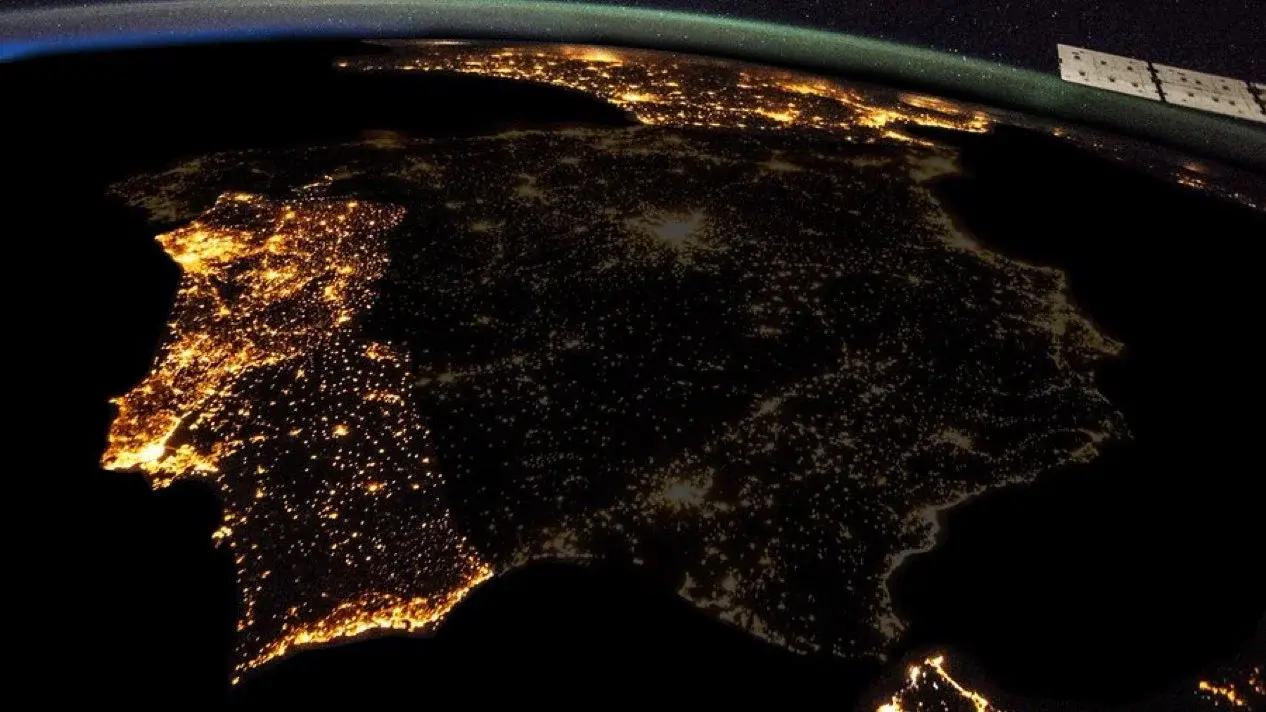This Monday, Spain experienced one of the worst power outages in years, and chaos soon took over. Since midday, millions of people in the peninsula (except in the islands), as well as in Portugal, were left without power, and for now no one knows exactly what happened.
The situation, however, was not limited to Spain and Portugal. France, Italy and Germany also reported massive power outages. An alleged power failure is said to have left millions of citizens without power, affecting hospitals, transportation, supermarkets, banks and other critical sectors.
Although in some areas of northern and southern Spain the service began to recover as the hours passed, the cuts paralyzed almost everything: stores, factories, trains, airports, roads, schools, hospitals... even mobile networks collapsed in several places.
While confusion grows, suspicions are also growing that this was not a simple technical failure, but that it could be a large-scale cyber-attack. There are no official confirmations yet, but the atmosphere is one of maximum alert.
Both the Spanish and Portuguese governments (and now also those of France, Italy and Germany) have mobilized their technical teams to thoroughly investigate what is going on. In the midst of this crisis, one statement in particular set off all the alarms: the President of the Andalusian Regional Government, Juan Manuel Moreno, warned that the blackout could be prolonged and called for extreme caution. A warning that has generated even more uncertainty among the population.
In the meantime, the authorities have recommended citizens to reduce their trips as much as possible, to consume as little energy as possible and to limit the use of cell phones to strictly necessary cases, given the possibility that the emergency could extend.
Red Eléctrica, the public company that manages the connections in Spain, was clear: they had never seen anything like this. “It is an absolutely exceptional incident,” they assured in a statement.
Now, the whole of Europe is watching with concern not only the recovery of the power grid, but also the possible evidence of a cyber-attack that could mark a turning point in the protection of critical infrastructures on the continent.
Cyberattack in Europe? Massive blackout in Europe sparks suspicions
The question is in the air: did a cyber-attack leave half of Europe without power? Although there is still no official confirmation, many experts have no doubts. “Everything points to the fact that a blackout of this size can only be caused by a cyberattack,” assured sources at the autonomous cybersecurity center. Even so, the central government remains cautious and has not wanted to confirm anything... yet.
The power outage began around 12:30 p.m. (local time in Spain), and it was like watching a country shut down in a matter of minutes: electricity demand fell from 25,184 megawatts to 12,425 megawatts, according to data from Red Eléctrica Española (REE). A massive plunge.
What happened after the blackout? Immediate chaos across Europe
From the very first moment, the blackout sowed chaos everywhere. Homes, hospitals, offices, trains, supermarkets, airports... nothing and no one was spared. Even sporting events, such as the Madrid Tennis Open, had to suspend their matches due to the lack of power. These were some of the most visible effects:
-
Airports such as Madrid-Barajas and Barcelona-El Prat suffered outages and are now operating with emergency plans.
-
Trains all over Spain came to a grinding halt, stranding thousands of passengers.
-
Supermarkets were forced to close branches due to the impossibility of maintaining normal operations.
-
The Internet disappeared in many areas, which only added to the confusion and sense of uncertainty.
In addition, the stock market was quick to react: shares of electricity giants such as Redeia and Iberdrola plummeted, reflecting the widespread nervousness.
What is known so far about the possible cyber-attack in Europe?
As soon as the blackout broke out, Spain wasted no time: President Pedro Sanchez immediately convened the National Security Council to analyze the situation. At the same time, the European Commission activated its emergency protocols and started working hand in hand with the Spanish and Portuguese authorities to investigate what the hell had happened.
From France, help also arrived quickly: 950 megawatts of electricity were sent to the Iberian grid to try to stabilize things a bit. Even so, Red Eléctrica warned that full recovery of service could take between six and ten hours, so patience was called for.
Although power gradually began to return in several areas of northern and southern Spain, uncertainty about the origin of the blackout continues to fuel tension. No one knows yet what really caused it.
What is clear is that the cyber-attack theory is gaining strength. Energy experts noted that before the collapse there were strange oscillations in power flows, something that is not normal and could be a sign of external manipulation. Meanwhile, in Portugal (which also suffered blackouts) the possibility that it all started in Spanish territory is being considered, but there are still no firm conclusions.
Beyond speculation, one thing is clear: the massive blackout has highlighted how fragile critical infrastructures are in the face of possible cyber-attacks. Although the investigation has only just begun, the mere fact that the authorities are openly talking about a digital attack already marks a turning point for Europe in terms of security.

